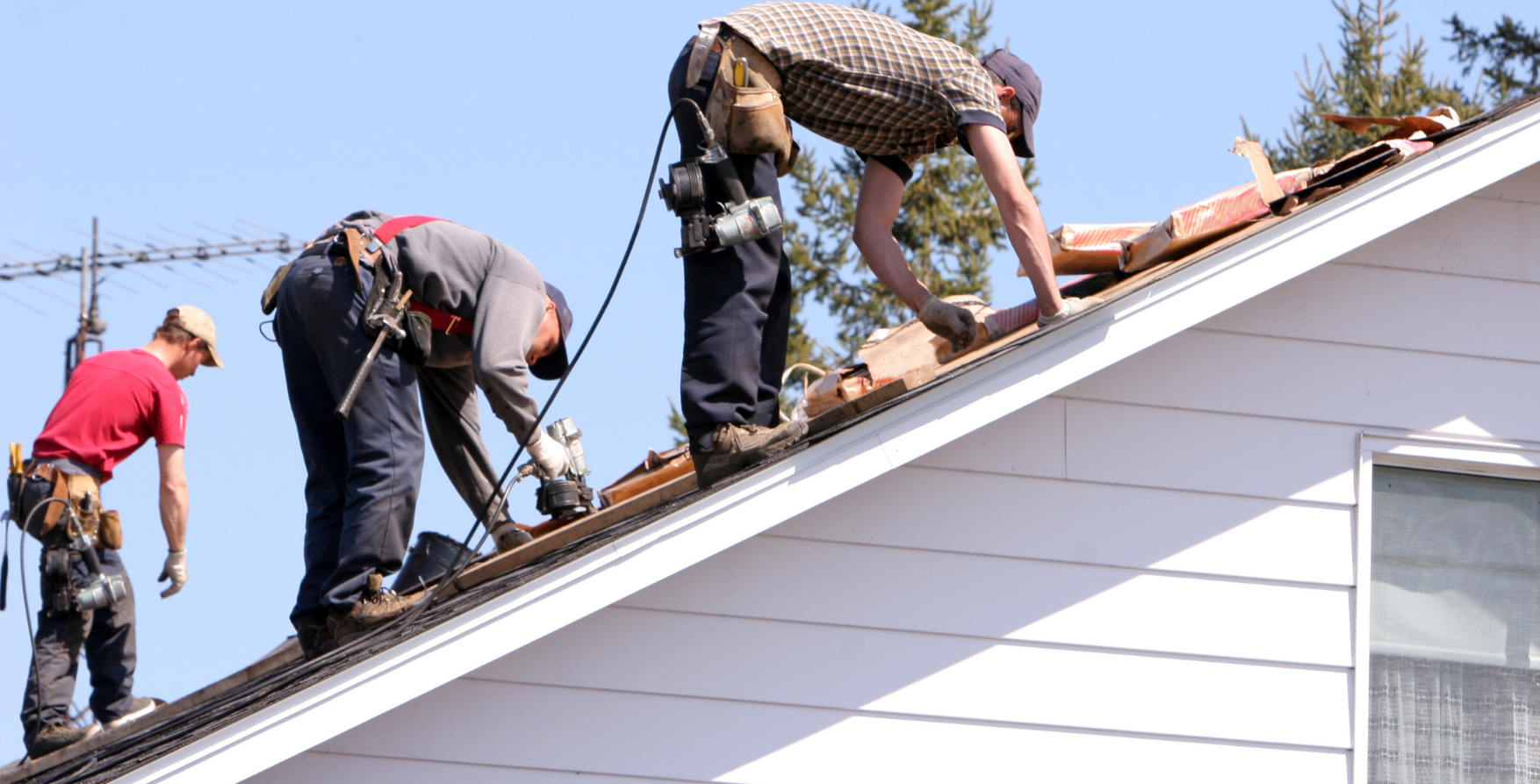Do You Still Have to Pay Anything After Your Claim is Approved?
Insurance payout for roof damage being counted.
When a storm rolls through the DMV, whether it’s heavy winds in Northern Virginia, hail in Maryland, or a pounding summer thunderstorm near D.C., many homeowners end up filing an insurance claim for roof damage.
During the insurance process, it's normal to have a couple of questions, and one of the top questions people often have is: “Do I still have to pay anything out of pocket?” The short answer is yes (sorry!). You'll have to pay:
Your deductible
The gap between insurance and the roofer’s estimate
The cost for any upgrades
Even with insurance coverage, there are still certain costs homeowners are responsible for. Let’s walk you through the three main things you might pay after your roof claim is approved.
1. You’ll Always Pay Your Deductible
Calculating the gap between insurance payout and roofing estimate
Every insurance policy has a deductible. That’s the portion you’re required to pay before insurance kicks in. It doesn’t matter if you’ve been paying premiums for 20 years; when your claim is approved, you’ll still owe that deductible.
Some homeowners hear this and immediately start looking for shortcuts. Maybe you’ve even heard of roofers offering to “cover” the deductible for you. Avoid those roofers. That’s insurance fraud, and it could land you in serious legal trouble.
A trustworthy local roofer in the DMV, like Da’ Roofers, will never suggest this. They’ll be upfront about the deductible and help you understand exactly what’s required.
2. You Have To Pay The Gap Between The Insurance and Roofer Estimates
Insurance companies use software to calculate what they think a roof replacement should cost. But those estimates often don’t match a local roofer’s estimate. Why?
Insurance may leave out labor costs
Certain line items may not be included
Materials in the DMV might cost more than the average used in their database
If you have a Replacement Cost Value (RCV) policy, your insurer will pay for a brand-new roof (minus your deductible). If you have an Actual Cash Value (ACV) policy, they’ll only pay the depreciated value (or what the roof's worth today), which means you’ll owe more.
Either way, many homeowners end up paying the difference between what insurance covers and what their chosen roofer charges.
A good roofing contractor will often help you supplement the claim to cover more items. Still, it’s not always guaranteed that insurance will approve everything. Learn more about that in our article on how roofing contractors can help with your insurance claims.
3. You Will Pay For Any Upgrades You Choose
The insurance payout is designed to restore your roof to its pre-storm condition, not to give you an upgrade. That means if you want something better than what you had, you’ll be paying the difference. For example:
Upgrading from 3-tab shingles to architectural shingles
Adding better ventilation
Installing a higher-quality shingle
That said, some upgrades are required by modern building codes. If your current roof doesn’t meet code, and your policy includes code upgrade coverage, insurance should handle those costs.
Conclusion
Roof repair in progress after insurance approval.
If your claim is approved, most of the heavy lifting will be covered by your insurance company. But you should still plan on paying:
Your deductible.
Any gap between the insurance payout and the roofer’s estimate?
The cost of the optional upgrades you choose.
Working with a local roofing company in the DMV makes this process much smoother. Local roofers, like Da’ Roofers, understand how insurance adjusters in your area work. They’re also familiar with the prices of materials and the building codes that apply to some areas in the DC, Maryland and Virginia areas.
This local knowledge can save you tons of stress and money while making sure your new roof is built right.
FAQs
1. Why is my roofer’s estimate higher than the insurance payout?
The reason for this is that the insurance company might exclude certain costs, like labor and some line items. Your roofer might help you supplement the claim, but you may still have to pay the difference out of pocket.
2. Will insurance pay for roof upgrades?
No. Insurance only covers restoring your roof to it’s pre-damage condition. If you want upgrades, you’ll have to pay out of pocket. However, if the upgrade is necessary according to modern building codes and your policy covers it, you can push for insurance to cover it.
3. What happens if my current roof doesn’t meet code?
Not all places in the DMV use codes. However, if your county does, and your current roof doesn't meet the building code, your roofer will have to repair to code. If your policy includes code upgrades, insurance should cover the required updates like drip edge or ventilation improvements.




